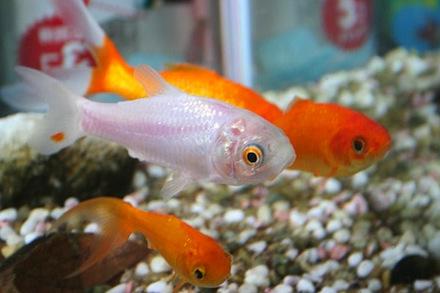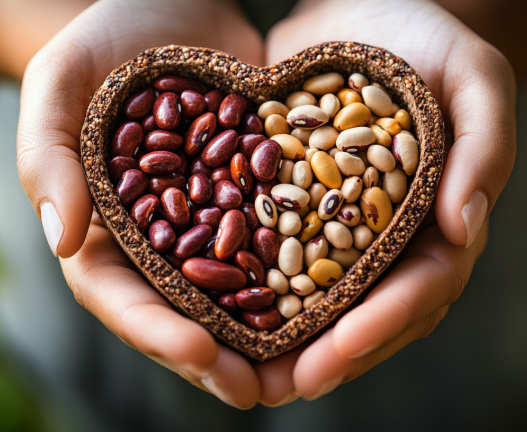Introduction: The Science Behind a Simple Gesture
Did you know that a gentle touch can shape your child’s brain and body development in ways you never imagined? Whether it’s stroking their tiny hands, rubbing lotion after a bath, or cuddling them close, this simple act has profound effects.
But how can something so effortless be so powerful? Science has the answer. Research shows that gentle touch enhances neural connections, supports physical growth, and strengthens emotional bonds. Let’s dive into the fascinating world of touch and uncover why it is essential for your child’s well-being.
How Gentle Touch Shapes Brain Development
The First Sensory Connection
From the moment a baby is born, skin-to-skin contact plays a critical role. This is why newborns are placed on their mother’s chest immediately after birth—it provides warmth, security, and a deep emotional connection.

Dr. Andrew Meltzoff from the University of Washington discovered that gentle touch stimulates the somatosensory cortex, the brain region responsible for processing touch. His studies revealed that when a baby’s hand is stroked, this area of the brain lights up. Even when babies simply observe others being touched, their somatosensory cortex responds.
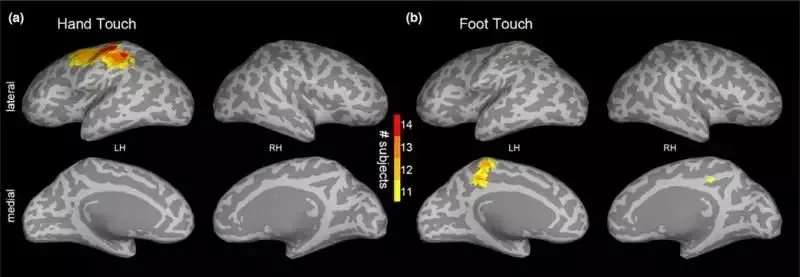
This means that both “feeling touch” and “watching touch” strengthen a child’s brain development, reinforcing neural pathways that support sensory perception, coordination, and emotional regulation.
The Physical Benefits of Touch
Touch isn’t just essential for brain development—it also promotes healthy physical growth. A study from the University of Miami found that preterm infants who received 45 minutes of gentle massage and passive movement exercises daily for just 10 days:
- Gained more weight
- Had improved overall health markers
- Were discharged from the hospital an average of six days earlier than those who did not receive the same care
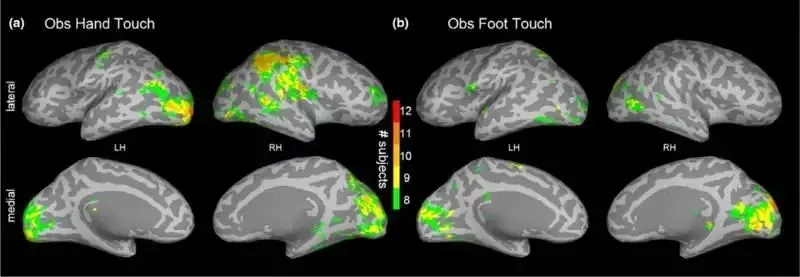
This proves that a loving touch is more than just comfort—it actively supports a baby’s development, helping them thrive.
The Magic of Touch: Stress Reduction and the Role of Oxytocin
Why Does Gentle Touch Have Such a Strong Impact?
During the early months of life, a baby’s sense of security and emotional well-being depends heavily on touch. Whether it’s a soothing rub, a cuddle, or skin-to-skin contact, touch sends calming signals to the baby’s nervous system.
Touch triggers the release of oxytocin, often called the “love hormone” or “cuddle chemical.” This powerful neuropeptide:
✔ Strengthens the bond between parent and child
✔ Creates feelings of safety and trust
✔ Reduces stress by lowering cortisol (the body’s primary stress hormone)
✔ Enhances sleep quality, helping babies rest longer and more peacefully

Studies show that babies who experience regular, gentle touch cry less, sleep better, and develop stronger emotional resilience. This highlights the power of human connection in shaping a baby’s mental and emotional health.
What If Your Child Outgrows Touch? Opt for Gentle Hugs!
As children grow, they may become less receptive to constant touch. So, what can parents do? The answer: hugs!
Research from Tokyo University tested different holding positions—cradling, hugging, and tight holding—to determine their effects on infants. The results showed that babies older than four months experienced the greatest sense of calm when given a gentle hug, which significantly lowered their heart rates.
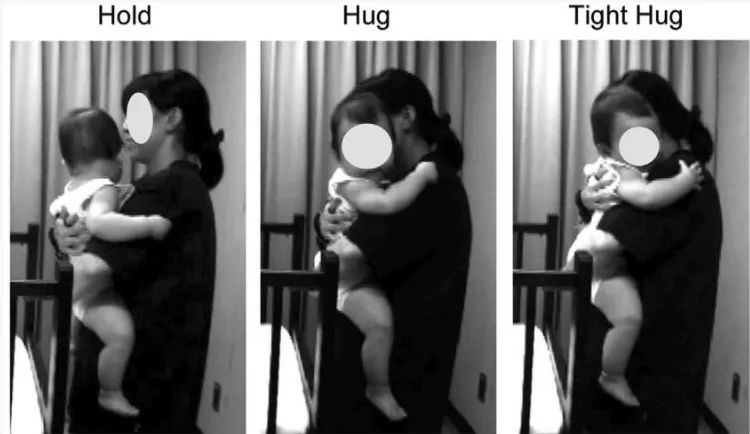
For older children, a warm hug after an argument or a difficult moment reminds them:
“Even if we disagree, my love for you remains unchanged.”
The Healing Power of Touch for Parents Too
Touch is not only beneficial for children—it also provides incredible healing effects for parents. Studies in the Netherlands reveal that physical closeness (like hugging or stroking) reduces:
✔ Pain
✔ Anxiety
✔ Depression
✔ Stress levels in both adults and children
Imagine coming home after a long, exhausting day, only to be greeted by your child’s loving hug. Is there anything more therapeutic?
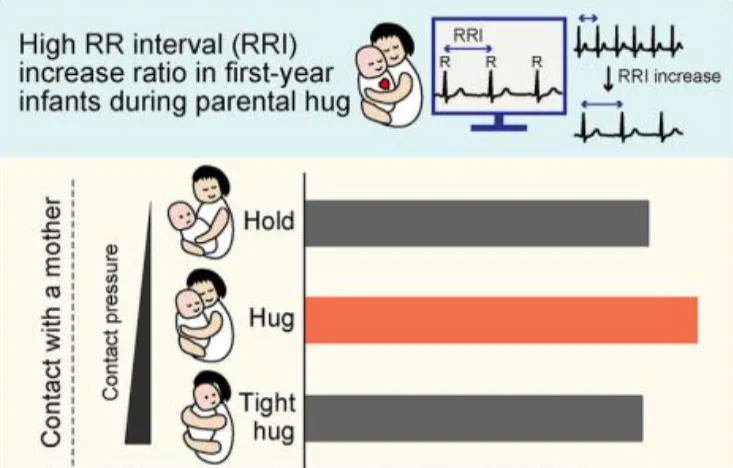
Conclusion: A Simple Yet Powerful Act
The beauty of gentle touch lies in its simplicity. It nurtures brain development, strengthens emotional bonds, reduces stress, and supports physical health. From infancy to adulthood, touch remains one of the most powerful ways to express love, security, and care.
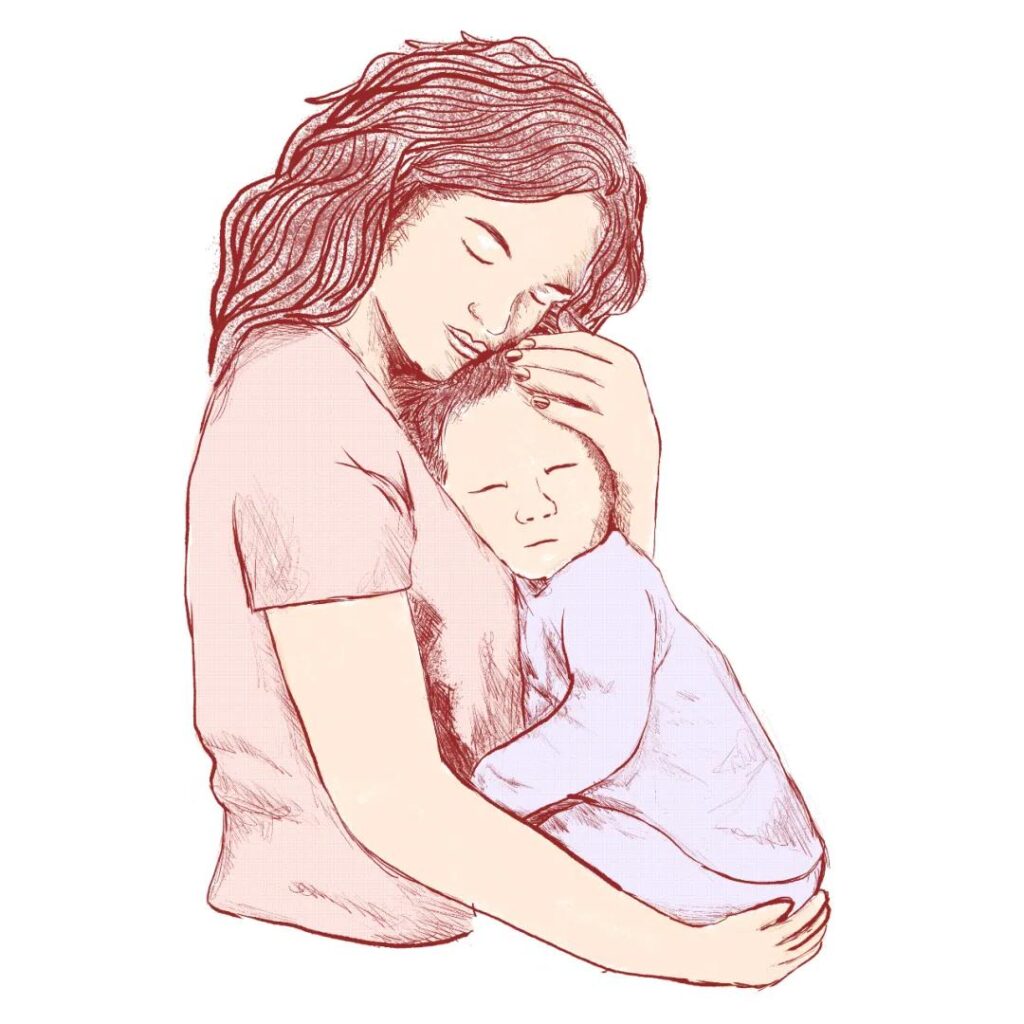
So, the next time you hold your child’s hand, stroke their back, or hug them tightly, remember—you’re doing much more than providing comfort. You’re shaping their future. 💛













